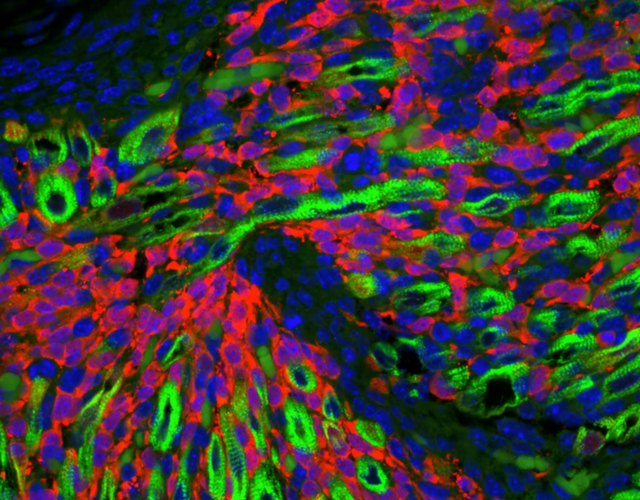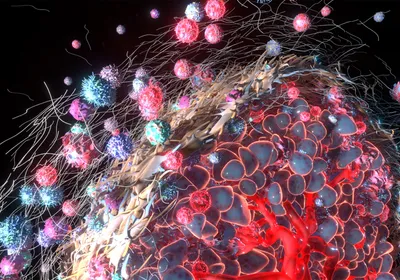 Immunostain of a 16.5-day-old mouse embryo, showing endothelial progenitor cells (red) proliferating into tumors between muscle fibers (green)CATHERINE DRUMMOND, ST. JUDE CHILDREN'S RESEARCH HOSPITAL Scientists previously believed that rhabdomyosarcoma, the most prevalent soft tissue cancer in children, originated exclusively from immature muscle cells, because the tumors resemble muscle tissue under the microscope. However, a new study shows that it instead arises from progenitor cells that would normally develop into epithelial cells that line blood vessels.
Immunostain of a 16.5-day-old mouse embryo, showing endothelial progenitor cells (red) proliferating into tumors between muscle fibers (green)CATHERINE DRUMMOND, ST. JUDE CHILDREN'S RESEARCH HOSPITAL Scientists previously believed that rhabdomyosarcoma, the most prevalent soft tissue cancer in children, originated exclusively from immature muscle cells, because the tumors resemble muscle tissue under the microscope. However, a new study shows that it instead arises from progenitor cells that would normally develop into epithelial cells that line blood vessels.
C.J. Drummond et al., “Hedgehog pathway drives fusion-negative rhabdomyosarcoma initiated from non-myogenic endothelial progenitors,” Cancer Cell, doi:10.1016/j.ccell.2017.12.001, 2018.






















